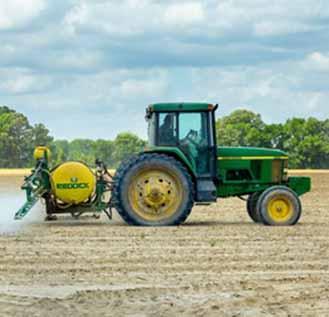Alamosa County Assessor
It is the duty of the Assessor to assess all property in Alamosa County in a fair and equitable manner in accordance with state guidelines.
The Assessor does not set tax amounts or levies. County Tax is levied by the Board of County Commissioners. City taxes are levied by City Officials. Special districts are levied by the District Directors and School Tax is levied by the District Boards. The Commissioners then certify the levies and resulting revenue to the Assessor. As a result, the Assessor then generates the Tax Roll for the County Treasurer.
Ph. (719) 589-6365| F. (719) 589-6118
8999 Independence Way | Suite 105
Alamosa, Colorado 81101
Monday-Friday 8:00 a.m. - 4:30 p.m.
CONTACT US

County Assessor
Sandra Hostetter
Photo Credit: NPS/Patrick Myers
Abstract of Assessment
See below for more information on the allocation of your property tax dollars and distribution of taxes:
Forms
Real & Personal Property Forms
Earth or Stone Products, Real & Personal Property
Personal Property Declaration Schedule
Real Property Transfer Declaration (TD-1000)
Renewable Energy Property Declaration Schedule
Manufactured Housing
Manufactured Housing Information
Manufactured Home Authentication Form
Manufactured Home Transfer Declaration
Affidavit of Real Property for a Manufactured Home
Veterans
Disabled Veteran Property Tax Exemption Instructions
Disabled Veteran Property Tax Exemption Application
Gold Star Spouse Form Instructions 2024
Gold Star Spouse Form Application 2024
Seniors
Senior Property Tax Exemption Long Form Instructions
Senior Property Tax Exemption Long Form Application
Senior Property Tax Exemption Short Form Instructions
Senior Property Tax Exemption Short Form Application
NOTICE OF PROPERTY TAX EXEMPTIONS FOR SENIOR CITIZENS AND DISABLED VETERANS
A property tax exemption is available to senior citizens, qualifying disabled veterans, the surviving spouses of Gold Star veterans and the surviving spouses of senior citizens or disabled veterans who were previously granted the exemption. For those who qualify, 50 percent of the first $200,000 in actual value of their primary residence is exempted. The state pays the exempted portion of the property tax. Once approved, the exemption remains in effect for future years, and the applicant need not reapply. The General Assembly may eliminate the funding for the Senior Citizen Exemption or Disabled Veteran Exemption at their discretion in any year that the budget does not allow for the reimbursement.
Application requirements are as follows:
SENIOR CITIZEN EXEMPTION
The exemption is available to applicants who: a) are at least 65 years of age as of January 1 of the year of application, b) owned their home for at least 10 consecutive years as of January 1, and c) occupied it as their primary residence and have done so for at least 10 years as of January 1. Limited exceptions to the ownership and occupancy requirements are detailed in the qualifications section of the application. The exemption is also available to surviving spouses of senior citizens who previously met the requirements. The application deadline for 2024 is July 15. The application form is available from the website of the Colorado Division of Property taxation at https://cdola.colorado.gov/property-taxation or the county assessor of the county in which the property is located. The application must be submitted to the county assessor at the following address:
Alamosa County Assessor
8999 Independence Way, Suite 105
Alamosa, Colorado 81101
(719) 589-6365
Senior Citizen Exemption
The Assessor's office has served nearly 1,000 senior citizens who have been approved to receive the “Senior Homestead Exemption”. The maintenance of this program is paramount to our office, and we will continue to administer the Senior Homestead Program.
For qualifying seniors, this exemption reduces the property tax on the primary residence by exempting 50% of the first $200,000 in market value. For example:
- If your primary residence has a market value of $200,000, the first $100,000 will be exempt from taxation.
- If your primary residence has a market value of $175,000, the first $87,500 will be exempt from taxation, etc.
If you have previously applied and been approved for participation in the Senior Exemption Program, you need take no further action. Your initial application is still in effect. The Assessor must be informed of any changes in ownership or occupancy of the property within 60-days of when the change occurs. IF ADDITIONAL INFORMATION IS NEEDED, WE WILL CONTACT YOU!
- Eligibility for Exemption
You must be at least 65 years of age as of January 1 of the year of application,
- Owned their home for at least 10 years as of January 1.
- Occupied it as their primary residence for at least 10 years as of January 1.
- Limited exceptions to the ownership and occupancy requirements are detailed in the qualifications section of the application.
- The senior citizen exemption is also available to surviving spouses of senior citizens who met the requirements on any January 1st after 2001. The application deadline is July 15.

Veteran Exemptions
DISABLED VETERAN EXEMPTION
The exemption is available to applicants who: a) sustained a service-connected disability while serving on active duty in the Armed Forces of the United States, b) were honorably discharged, and c) were rated by the federal Department of Veterans Affairs as one hundred percent permanent disability through disability retirement benefits. Disabilities rated at less than one hundred percent and VA unemployability awards do not meet the requirement. The applicant must have owned and occupied the home as his or her primary residence since January 1 of the year of application; however, limited exceptions to the ownership and occupancy requirements are detailed in the eligibility requirements section of the application. The application deadline is July 1.
DISABLED VETERAN SURVIVING SPOUSE EXEMPTION
The exemption is available to surviving spouses of disabled veterans who had the disabled veteran exemption and who passed away prior to January 1 of the current year. The property must be owner occupied and used as the primary residence of an owner-occupier who is the surviving spouse of a qualifying disabled veteran. The application deadline is July 1.
GOLD STAR SPOUSES
This exemption is available to surviving spouses of “Gold Star Veterans”. The property must be owner occupied as of January1 in the year of the application and used as the primary residence of an owner-occupier who is the surviving spouse of a qualifying Gold star Veteran. The application deadline is July 1. In early January 2024, the application form is available from the assessor of the county in which the property is located, at the following address:
Alamosa County Assessor
8999 Independence Way, Suite 105
Alamosa, Colorado 81101
(719) 589-6365

Frequently Asked Questions
Pursuant to Colorado State Statute C.R.S. Article 3, Title 39, all taxable and exempt property is valued by the county assessor valuation criteria as stipulated by statute and by using manuals, appraisal procedures, and instructions issued by the Property Tax Administrator.
- The total value as determined by the County Assessor is certified to the county entities and the state.
- Each entity certifies a mill levy to the Assessor and then it is the duty of the Assessor to extend the tax on all property assessed and direct the County Treasurer to collect the taxes.
All property, real and personal, located in the State of Colorado on the assessment date, January 1, is taxable unless expressly exempted by the Constitution or state statutes. Article X, Section 3, Colorado Constitution, and 39-1-102 (16), C.R.S.
- Most property in Colorado is valued using the three approaches to value:
- The market approach, the cost approach, and the income approach.
- The exceptions to the three approaches include residential real property (market only), agricultural land, and natural resource land (special valuation procedures based on productivity and production).
- The market, cost, and income data that county assessors use to apply the appropriate approaches to value is collected during specific periods prescribed by statute and represent a certain ''level of value''.
- Property taxes are not calculated on the ''full actual value'' as determined by the assessor. Instead, an assessment percentage is applied according to the classification of the property. 39-1-104(1) and (1.5), C.R.S.
- Residential property is assessed at a percentage of the actual value; currently, this percentage is 7.15% while most other property is assessed at 29%.
A property owner must be sent a notice of valuation (NOV) every year.
- This notice must be mailed no later than May 1.
- In the language of the notice is stated the actual value that the assessor has assigned to your property.
- This notice of valuation is not a tax bill.
- The purpose of this notice is to inform you of any change in your property valuation and advises you of your right to appeal the value.
If a taxpayer disagrees with the value assigned by the assessor, the taxpayer may file a protest during the statutory protest period.
- Real property protests must be postmarked no later than June 1, or a taxpayer may appear in person to protest no later than June 1. 39-5-121(1), C.R.S.
- Personal property protests must be postmarked no later than June 30, or a taxpayer may appear in person to protest no later than July 5. 39-5-121(1.5), C.R.S.
- A protest form is included with the notice of valuation: however it is not mandatory for the taxpayer to use this form, or any other particular form, when protesting.
All personal inquiries and letters/faxes received during the protest period are processed and reviewed.
- The assessor's staff corrects any erroneous or improper valuations.
- If the assessor determines that the value is correct, no adjustments will be applied.
- In each determination, the assessor includes the reason(s) for denial and information regarding the taxpayer's right of appeal to the county Board of Equalization.
NO! Colorado statutes require that the sitting assessor hear protest on valuation that has been assigned by the assessor.
The assessor does not assign taxes.
Taxes include a number of components that are beyond the assessor's control, such as mill levy and assessment rate.
The assessment rate is set by the State Legislature and mill levies are determined by each governing entity such as schools, city or county, fire department, etc.
The end results of these components determine the amount of taxes levied. The following is an example of how taxes are determined.
| Property Type: | Residential | Non-Residential |
| Assigned by Assessor: | $100,000 | $100,000 |
| State Statutes: | x .0796 | x .29 |
| Assessed Value: | $7,960 | $29,000 |
| Mill Levy assigned by an entity: | x.074201 | x .074201 |
| Taxes Due: | $590.64 | $2,151.83 |
Agricultural land valuation is directed by Section 3(1)(a), article X of the Colorado Constitution and are calculated on the earning capacity of the land, using a ten year average of commodity prices, locally researched expenses and factors supplied by the Division of Property Taxation. Each of the Assessor’s offices are audited to verify that their calculations fall within the guidelines prescribed by the Colorado Constitution.
